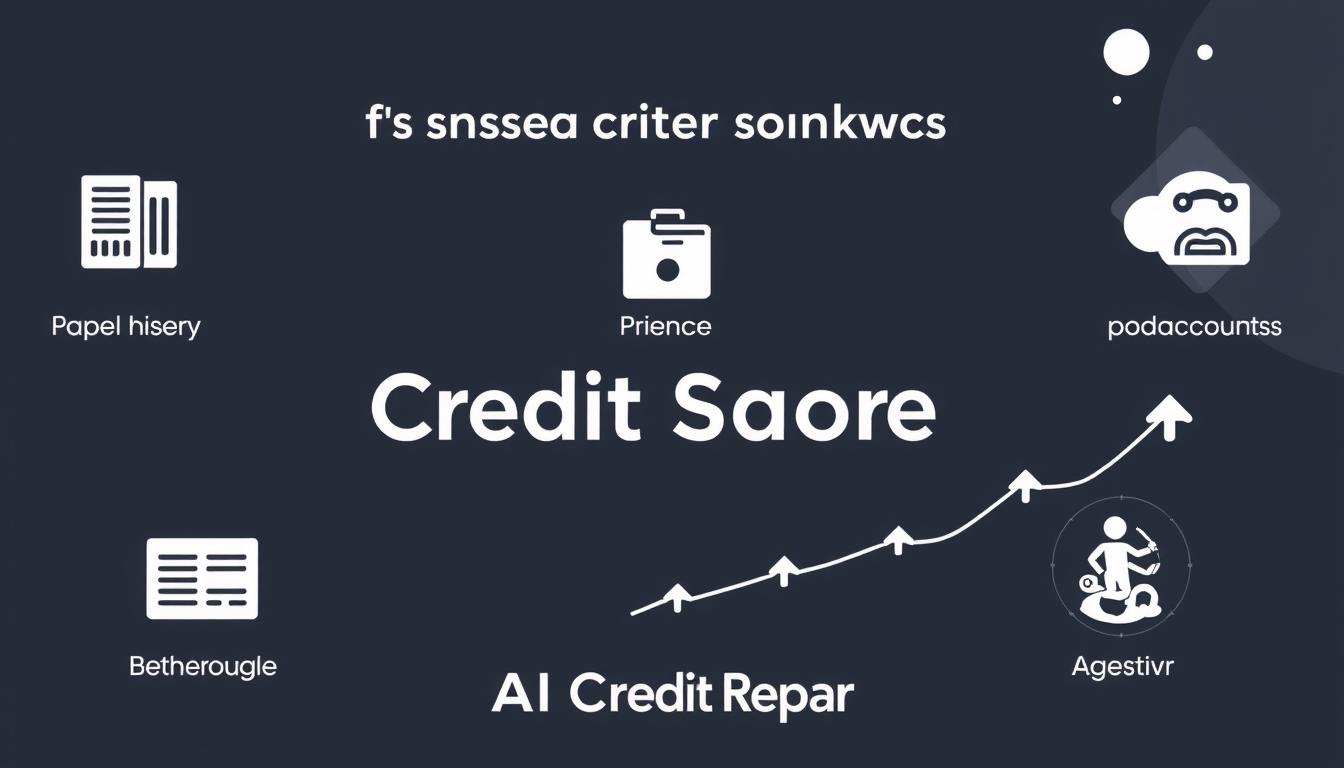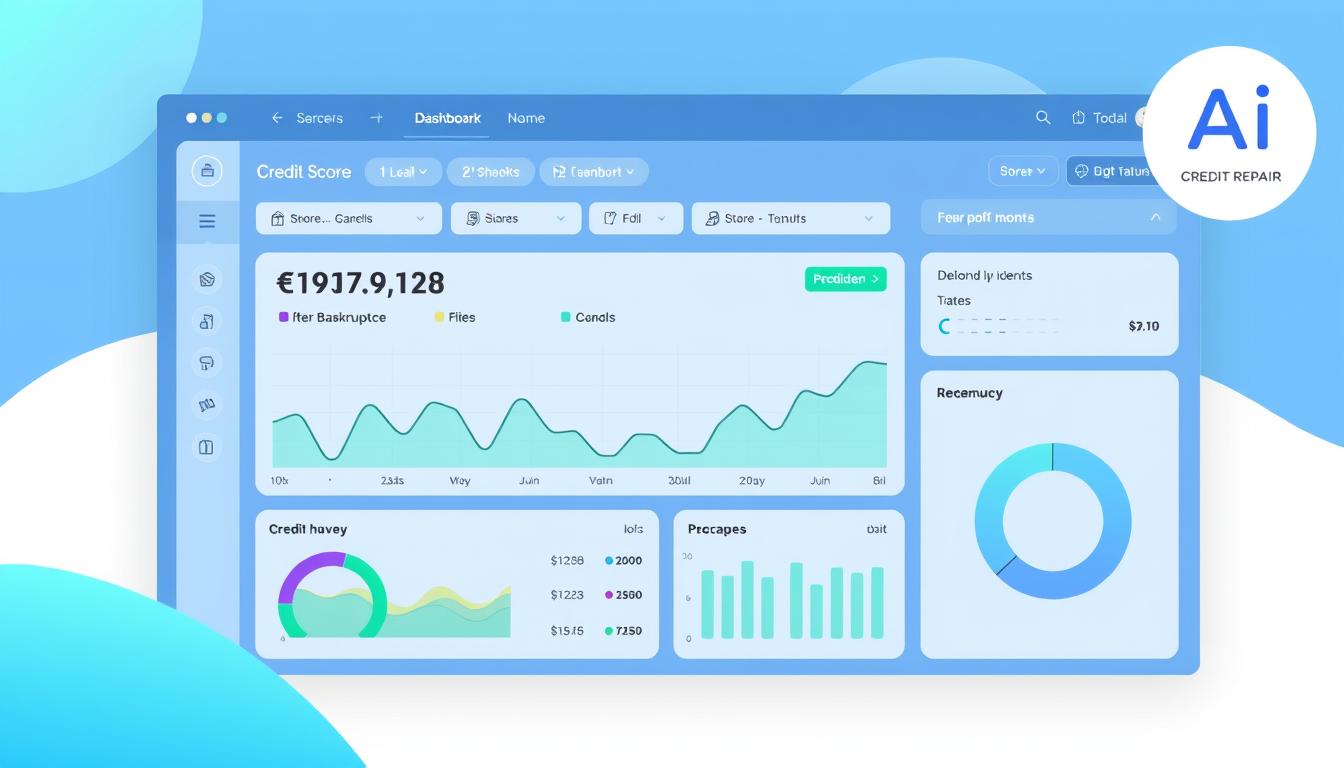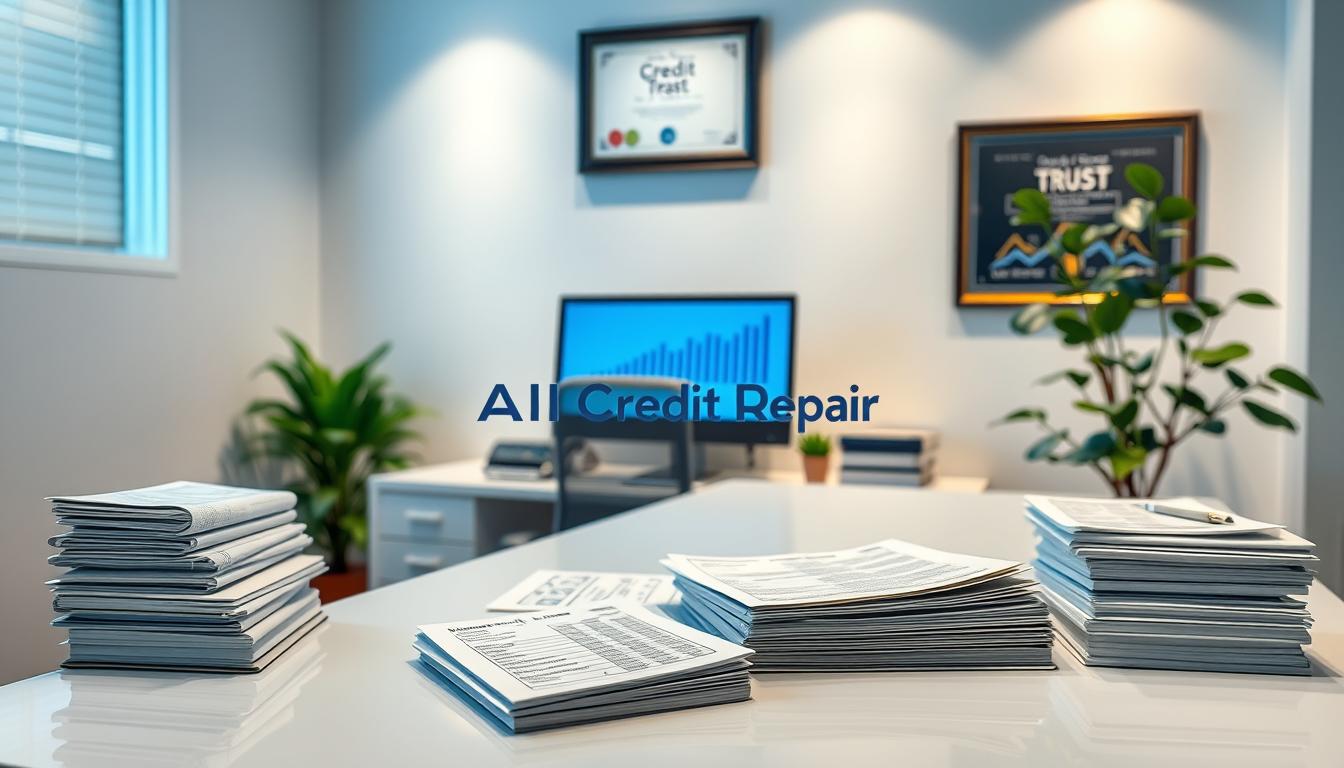Bankruptcy can be a tough financial challenge. It greatly affects your credit score and future financial opportunities. Your credit score impacts your ability to get loans, credit cards, housing, and even jobs.
We’ll explore how bankruptcy affects your credit score. We’ll also look at the timeline for credit score recovery. Finally, we’ll discuss strategies for rebuilding your credit after bankruptcy.
Key Takeaways
- Bankruptcy can significantly impact your credit score, causing it to drop significantly.
- The type of bankruptcy filed (Chapter 7 or Chapter 13) and the timing of the bankruptcy discharge can affect the timeline for credit score recovery.
- Establishing new credit accounts, improving payment history, and utilizing secured credit cards are effective strategies for rebuilding your credit after bankruptcy.
- Regularly monitoring your credit reports and addressing any errors or inaccuracies is crucial for maintaining good credit in the long run.
- Avoiding credit repair scams and seeking legitimate credit counseling services can help you navigate the credit rebuilding process effectively.
Understanding Credit Scores and Bankruptcy
Bankruptcy can greatly affect your credit score. It’s vital to know the types of bankruptcy and their effects. This knowledge helps you handle the financial aftermath better.
The Impact of Bankruptcy on Credit Scores
Filing for bankruptcy can severely harm your credit score. The impact depends on the type of bankruptcy and your financial history. Bankruptcy can stay on your credit report for up to 10 years.
During this time, getting credit, loans, or even renting a home becomes harder. Your financial options may be limited for years.
Types of Bankruptcy and Their Effects
Individuals can file for two main types of bankruptcy: Chapter 7 and Chapter 13. Each type affects your credit score differently.
- Chapter 7 Bankruptcy: This “liquidation” bankruptcy discharges eligible debts. It has a more severe, longer-lasting impact on your credit score. Chapter 7 can stay on your credit report for up to 10 years.
- Chapter 13 Bankruptcy: This involves a 3-5 year repayment plan for a portion of your debts. The effect on your credit score may be less severe than Chapter 7.
Knowing how bankruptcy affects credit score is key for smart financial choices. Understanding the types of bankruptcy helps you prepare for future challenges.
The credit score impact of different bankruptcies varies. This knowledge can guide you in making better financial decisions moving forward.
Factors Affecting Your Credit Score After Bankruptcy
Rebuilding credit after bankruptcy involves many factors. Knowing these key elements helps create a plan to boost your credit standing. This process can be challenging but rewarding.
The type of bankruptcy filed greatly impacts your credit score. Chapter 7 bankruptcy usually hits credit harder than Chapter 13. Chapter 7 involves liquidating assets, while Chapter 13 includes a repayment plan.
The timing of your bankruptcy also matters. Recent bankruptcies affect credit scores more heavily. As time passes, the negative impact lessens gradually.
- Your financial habits after filing are crucial. Making timely payments, cutting debt, and managing credit responsibly help rebuild your score.
- The types of credit accounts you use matter too. Secured credit cards and small loans can aid in credit rebuilding.
Taking action on these factors can improve your post-bankruptcy credit score. With effort, you can regain financial stability and achieve your goals.

“The road to credit recovery after bankruptcy may be long, but with patience and diligence, it is possible to rebuild your credit and achieve your financial goals.”
The Timeline for Credit Score Recovery
Rebuilding your credit score after bankruptcy takes time and effort. It’s a gradual process that requires patience. Understanding the recovery timeline helps set realistic expectations for improving your finances.
Short-term Effects on Your Credit Score
After filing for bankruptcy, expect a big drop in your credit score. The filing appears on your credit report. This signals to lenders that you’ve struggled with debt management.
Your credit score may fall by 200 points or more. The exact drop depends on the type of bankruptcy filed.
Long-term Credit Score Rebuilding Strategies
- Establish new credit accounts: Opening new credit cards or obtaining a secured credit card can help you demonstrate responsible credit behavior over time.
- Make timely payments: Consistently making on-time payments on any new credit accounts you open is crucial for rebuilding your credit score.
- Monitor your credit report: Regularly reviewing your credit report and disputing any inaccuracies can help improve the accuracy of your credit information.
- Utilize credit-building loans: These specialized loans are designed to help individuals with poor credit histories establish a positive payment history.
Credit score recovery after bankruptcy varies for each person. Most people see gradual improvement over several years. A strategic approach to rebuilding credit is key.
With patience and effort, you can regain a healthy credit profile. This will help you achieve your financial goals in the long run.
| Timeline | Impact on Credit Score | Rebuilding Strategies |
|---|---|---|
| Short-term (0-2 years) | Significant drop (up to 200+ points) |
|
| Long-term (2-7 years) | Gradual improvement |
|
Rebuilding Your Credit After Bankruptcy
Rebuilding credit after bankruptcy is vital for financial recovery. Focus on establishing new credit accounts and improving payment history. These actions can help you gradually rebuild your creditworthiness.
Establishing New Credit Accounts
Start by opening new credit accounts after bankruptcy. This can include secured credit cards, credit-builder loans, or becoming an authorized user. These options help demonstrate responsible credit behavior.
They can gradually improve your credit score over time. Responsible use of these accounts is key to rebuilding your credit.
- Apply for a secured credit card: Secured cards require a refundable security deposit, which becomes your credit limit. Use the card responsibly by making on-time payments to build a positive credit history.
- Consider a credit-builder loan: These loans are designed to help you build credit. The lender holds the loan amount in an account, and you make monthly payments, which are reported to the credit bureaus.
- Become an authorized user: Ask a family member or friend with a good credit history to add you as an authorized user on their credit card. This can help boost your credit score by associating you with their positive credit history.
Improving Payment History
Your payment history greatly impacts your credit score. After bankruptcy, show a pattern of on-time payments. This builds trust with creditors.
- Setting up automatic payments or payment reminders to ensure you never miss a due date.
- Prioritizing your payments, focusing on essential bills and credit accounts first.
- Negotiating with creditors to set up manageable payment plans, if necessary.
Establish new credit accounts and improve your payment history. These steps will help rebuild your credit after bankruptcy. With time, you can work towards a brighter financial future.

What Is Your Credit Score After Bankruptcy?
Bankruptcy can significantly impact your credit score. Your score may drop by 100 to 200 points or more. This decline stems from negative information on your credit report.
After bankruptcy, credit scores typically range from the low 500s to mid-600s. This range depends on your credit history and bankruptcy type. Each person’s situation is unique, so scores can vary.
| Credit Score Range | Percentage of Consumers |
|---|---|
| 500-549 | 18% |
| 550-599 | 14% |
| 600-649 | 13% |
| 650-699 | 12% |
The good news is you can rebuild your credit score after bankruptcy. Focus on paying bills on time and reducing debt. Establish new credit accounts responsibly.
Recovering your credit score after bankruptcy takes time and effort. With dedication and smart financial habits, you can improve your average credit score after bankruptcy. Stay focused on your goals to regain financial stability.
Monitoring Your Credit Score Progress
Tracking your credit score and reviewing reports is crucial after bankruptcy. It helps you make smart financial decisions. You can take steps to improve your creditworthiness.
Accessing Your Credit Reports
Getting credit reports from Experian, Equifax, and TransUnion is key to monitoring your credit score after bankruptcy. You can get free yearly reports from AnnualCreditReport.com.
Check your reports often for accuracy. Look for errors or bankruptcy-related items affecting your score. Dispute any wrong info with credit bureaus.
- Review your credit reports regularly to ensure the accuracy of the information and identify any discrepancies or errors.
- Check for any negative items related to your bankruptcy that may be impacting your credit score.
- Dispute any inaccurate or unverified information with the credit bureaus to improve your credit profile.
Staying on top of your credit reports is a vital step in accessing your credit reports after bankruptcy and rebuilding your credit score over time.

Regular credit monitoring helps you make smart choices. You can take steps to boost your financial health. This approach aids in long-term credit improvement.
The Role of Secured Credit Cards
Rebuilding credit after bankruptcy can be tough. Secured credit cards can help. These cards require a refundable deposit, which becomes your credit limit.
Secured cards help show responsible credit use. By paying on time and keeping balances low, you can boost your credit score. This can lead to better credit options in the future.
Choose a card that reports to all three major credit bureaus. This ensures your good habits are reflected in your credit report. Look for cards reporting to Experian, Equifax, and TransUnion.
“Secured credit cards are a game-changer for those looking to rebuild their credit after bankruptcy. They provide a structured path to responsible credit usage and, ultimately, a stronger financial future.”
To use a secured card well, keep your balance low. Always pay on time and check your credit report often. With good habits, you may qualify for an unsecured card later.
Secured credit cards are key tools for post-bankruptcy credit rebuilding. They offer a path to better credit and financial stability. Use them wisely to improve your credit score and financial health.
Avoiding Credit Repair Scams
Rebuilding credit after bankruptcy requires caution against credit repair scams. These frauds can harm your financial progress. Learn to spot legitimate services and recognize deceptive practices.
Legitimate Credit Repair Services
Reputable credit repair companies follow ethical standards and transparency. They offer clear contracts detailing services, fees, and timelines. These providers encourage you to review credit reports and dispute errors directly.
Their goal is to empower you to control your financial future. They don’t make unrealistic promises.
Red Flags of Fraudulent Practices
- Requests for payment upfront before any services are provided
- Promises to remove accurate, negative information from your credit report
- Advises you to create a new identity or Employer Identification Number (EIN) to “fix” your credit
- Lacks transparency about their services, fees, or the credit repair process
- Pressures you to sign a contract without thoroughly explaining the details
Stay alert and learn about legitimate credit repair services. This knowledge helps avoid scams and focus on ethical credit rebuilding strategies.

Credit recovery after bankruptcy takes time. With proper guidance and responsible financial habits, you can regain stability. Stick to your goals and watch your credit improve.
Tips for Maintaining Good Credit After Bankruptcy
Rebuilding credit after bankruptcy is just the start. Keeping good credit needs ongoing care and smart money choices. Here are some tips to help you maintain a strong credit profile:
Make a realistic budget and stick to it. This shows you can manage money well. Set aside funds for essential expenses, debt payments, and savings.
Pay all bills on time. This includes utilities and credit cards. On-time payments avoid fees and help your credit score.
- Stick to a Budget – Creating and sticking to a realistic budget is crucial for keeping your finances on track. Allocate funds for essential expenses, debt payments, and small savings to demonstrate responsible money management.
- Make Payments on Time – Payment history is a significant factor in your credit score. Ensure you make all payments, including utility bills and credit card payments, on or before the due date to avoid late fees and negative impacts on your credit.
- Monitor Your Credit Report – Regularly review your credit report to identify any errors or discrepancies. Dispute any inaccuracies promptly to maintain the integrity of your credit history.
Check your credit report often. Look for mistakes and report them right away. This keeps your credit history accurate.
These tips for maintaining good credit after bankruptcy can lead to long-term financial success. Building credit takes time, but good habits pay off.
| Tip | Description |
|---|---|
| Stick to a Budget | Creating and sticking to a realistic budget is crucial for keeping your finances on track. Allocate funds for essential expenses, debt payments, and small savings to demonstrate responsible money management. |
| Make Payments on Time | Payment history is a significant factor in your credit score. Ensure you make all payments, including utility bills and credit card payments, on or before the due date to avoid late fees and negative impacts on your credit. |
| Monitor Your Credit Report | Regularly review your credit report to identify any errors or discrepancies. Dispute any inaccuracies promptly to maintain the integrity of your credit history. |
“Rebuilding credit is a marathon, not a sprint. Stick to your plan, stay patient, and you’ll see progress over time.”
Conclusion
We’ve explored how bankruptcy affects your credit score. We’ve looked at different bankruptcy types and factors influencing your credit standing. We’ve also discussed the timeline for credit score recovery.
Rebuilding credit after bankruptcy needs a strategic approach. This includes opening new credit accounts and managing payments carefully. Using tools like secured credit cards can also help.
With dedication and a clear plan, you can overcome bankruptcy setbacks. You can regain control of your finances. This is not the end, but a new beginning for your financial future.

